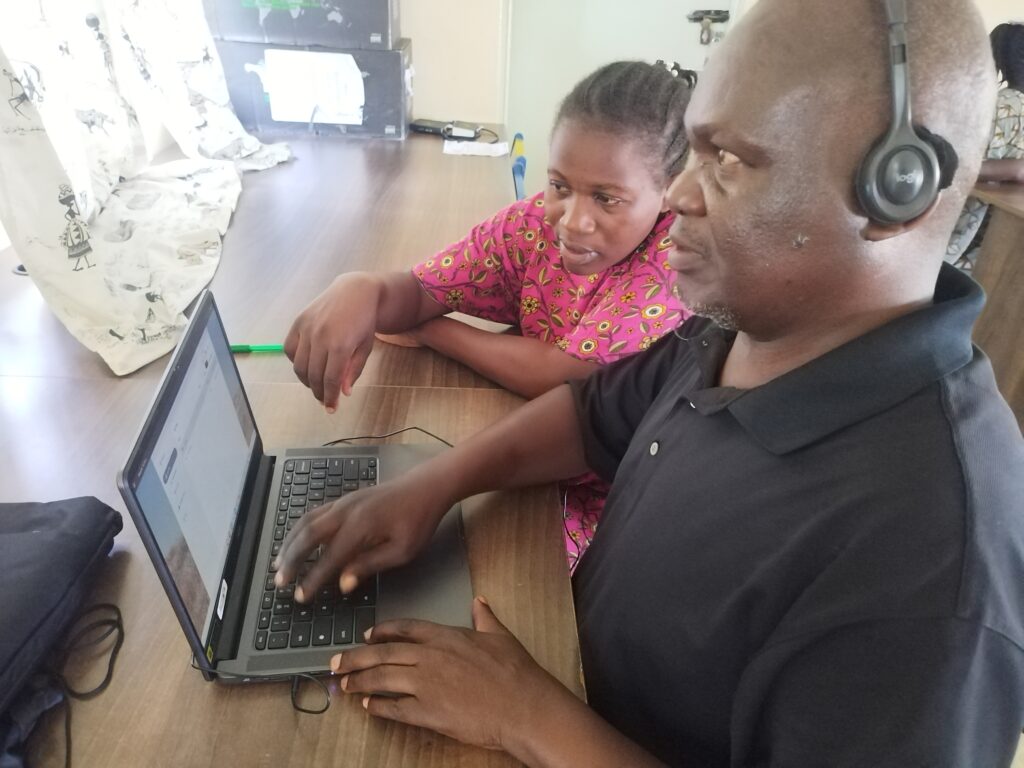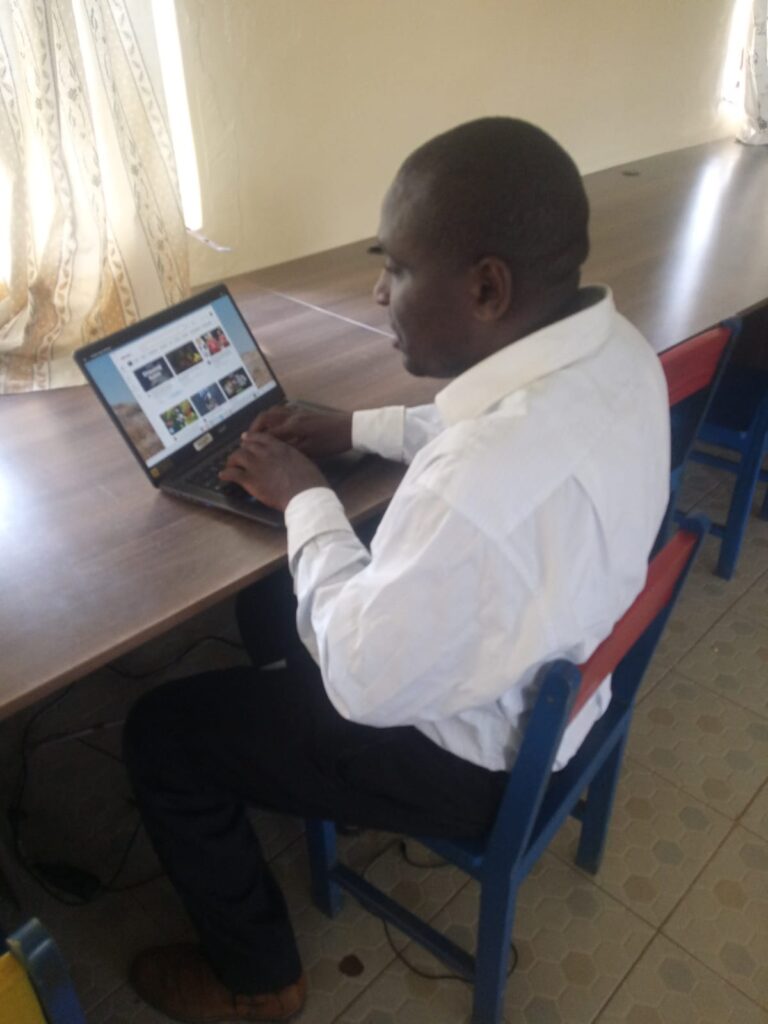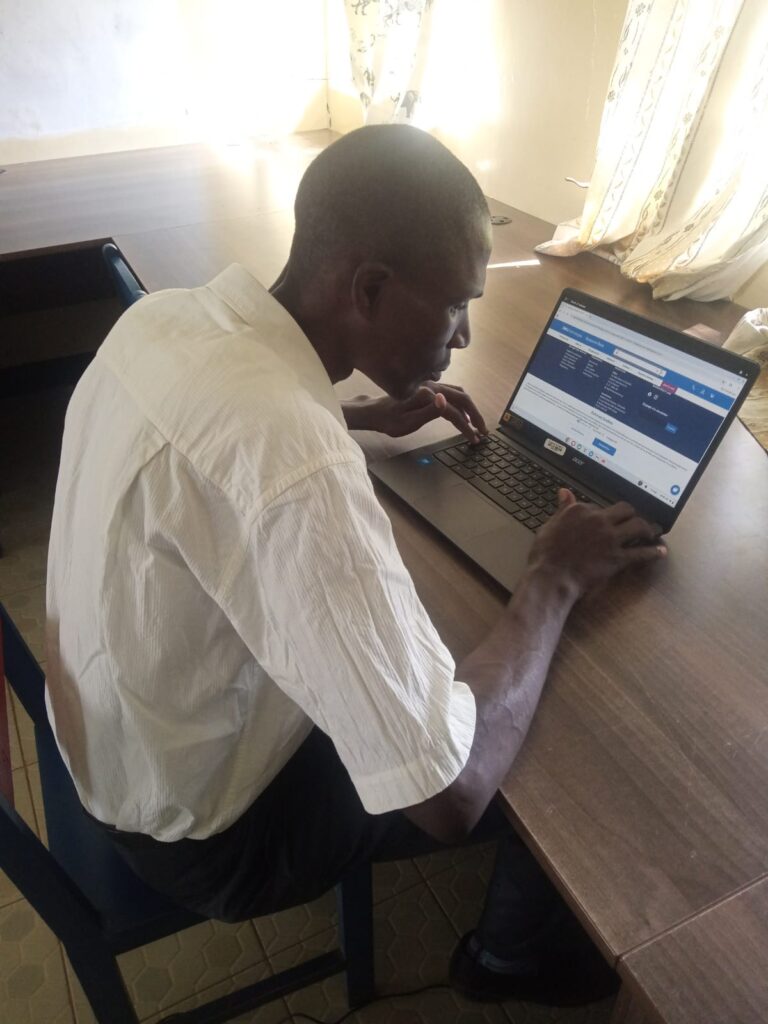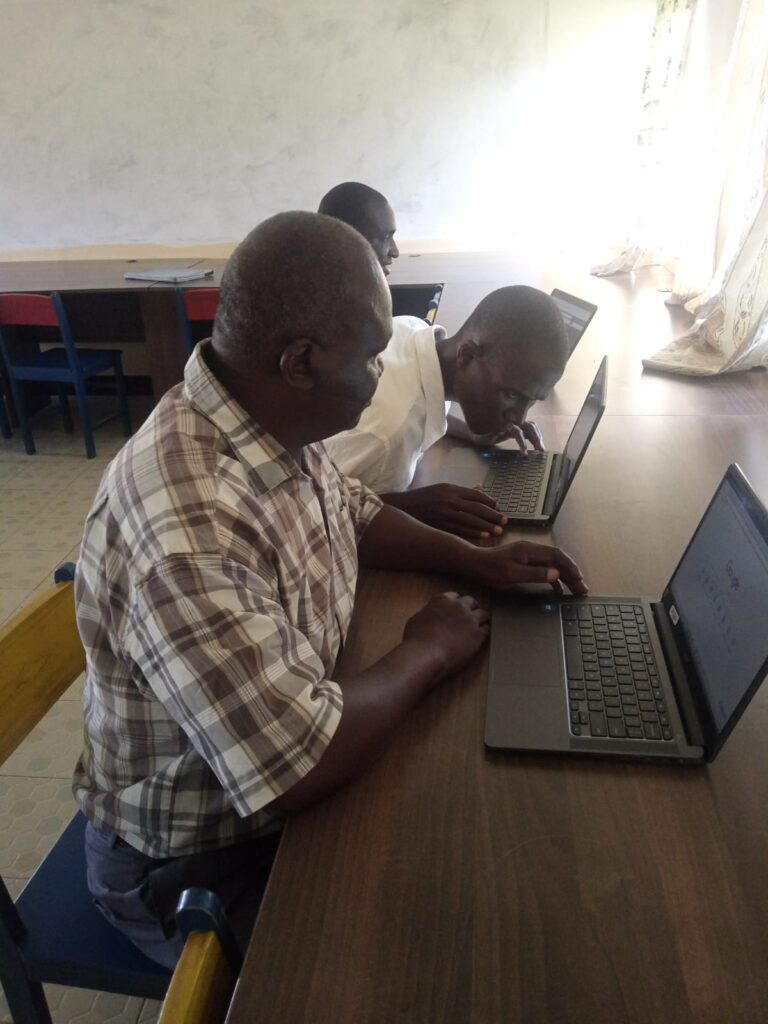Blind Teachers Embrace Tech to Enhance Teaching
inableAdmin
During the August school break, three visually impaired teachers—Mr. Joash Ododa, Mr. Fredrick Ochieng, and Mr. Lawi Obonyo—made remarkable strides in integrating technology into their teaching. These educators actively spent their time in inABLE’s computer lab at St. Oda School for the Visually Impaired, where they enhanced their proficiency with Google tools, including Google Classroom, Google Chat, and Gemini.
The teachers have greatly benefited from various training programs, including a dedicated Teachers Training Program by inABLE, held three times a week. This program has helped them improve their typing and browsing skills.
The three, whose specialty span Social Studies, English, Kiswahili, and Music visit the lab for close to three hours a day, driven by their passion for continuous improvement and the availability of trained instructors who are always ready to assist them. The internet connectivity provided in the lab also serves as a valuable resource, allowing them to do extensive research and explore the vast world of online resources.

The primary focus of these teachers is to enhance their digital literacy, specifically in browsing the web, assessing and grading student assignments, and utilizing communication tools like Google Chat. The teachers also use the Gemini app, which simplifies the research experience for visually impaired users. These skills are crucial for modern education, allowing them to engage with students remotely and provide seamless feedback.
“Having the ability to create a class on Google Classroom and share learning materials with students has been transformative,” says Mr. Fredrick. “The ability to access feedback and facilitate group discussions online is something I never thought would be possible for me.”
Mr. Lawi, one of the teachers, also took part in a specialized training conducted by PAWA IT, where he learned to leverage Google tools to add value to his teaching.

“PAWA IT’s training opened my eyes to the possibilities of integrating Google tools in my teaching,” explains Mr. Lawi. “These tools have enabled me to give and assess assignments online, making my job much easier.”
While navigating the digital world as a blind teacher has not been without its challenges, the accessibility features of Chromebooks, such as Chromevox (a built-in screen reader), have made a significant difference. The teachers have faced some issues with navigation on Google Docs and Classroom, but these challenges are promptly addressed through regular collaboration with Google.
The ability to adapt to these new technologies has had a profound impact on their professional lives. They have gained essential ICT skills, which are listed as a requirement by the Teachers Service Commission (TSC), and they are now able to prepare professional documents digitally—an accomplishment they never thought possible a few years ago.

“Not long ago, I couldn’t imagine operating digital devices like my sighted colleagues,” says Mr. Joash. “But with exposure to Chromebooks, I’m not only familiar with them, but I also actively engage in digital platforms and contribute to discussions affecting the blind community.”
One of the most touching success stories comes from Mr. Joash, who had long dreamed of writing his biography detailing his journey with vision loss. “I tried using a Braille machine, but I wasted a lot of paper. With the Chromebook, I can write, edit, and even print my work easily,” he says. “This is a significant milestone for me in my recovery from vision loss. The Chromebook is helping me achieve my dream.”
The lab environment at inABLE is designed to be fully accessible for blind teachers. Chromebooks, equipped with built-in accessibility features, allow the teachers to work independently. Additionally, the lab provides full access to internet connectivity, enabling the teachers to browse, research, and expand their knowledge on various topics.
Field instructors play a critical role in supporting the teachers during their sessions, helping them navigate accessibility issues and guiding them through various ICT platforms. The instructors ensure that the teachers can seamlessly integrate technology into their teaching practices, empowering both the educators and their students.

The teachers have big plans. Mr. Lawi envisions a fully paperless class where bulky Braille books and machines will be replaced by efficient digital tools. He is determined to integrate ICT into his teaching practices, making learning more accessible and enjoyable for visually impaired students.
“I look forward to the day when I won’t have to carry heavy Braille machines to class,” says Mr. Lawi. “Technology has the power to transform not just my teaching but also the way my students learn. With the help of Chromebooks, I believe that I can lead my students into a brighter, more inclusive future.”
By providing these teachers with access to technology and the necessary training to use it effectively, inABLE’s digital lab is making significant strides toward a more inclusive educational landscape for blind teachers and learners alike.
As these blind teachers continue to refine their skills and incorporate technology into their daily teaching practices, they are not only transforming their own lives but also inspiring their students. With the continued support of inABLE and its partners, they are confident that the future of education for the visually impaired will be brighter and more inclusive.
As Mr. Joash aptly sums up: “With Chromebooks, we are not just keeping pace with the world—we are leading the way.”
Written by Shadrack Otieno, inABLE’s Computer Instructor and Lily Ronoh-Waweru, Strategic Communications Specialist